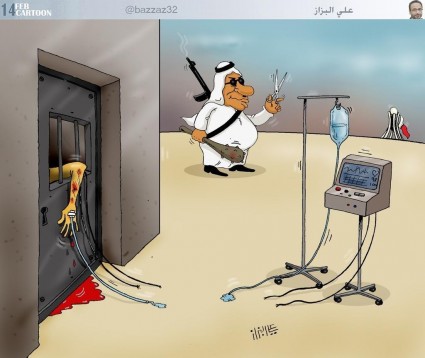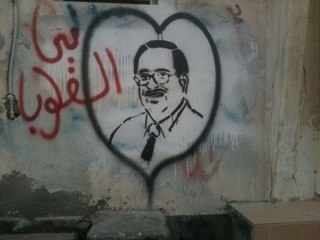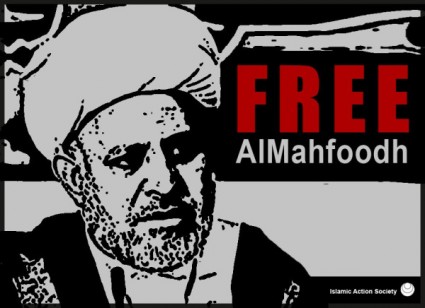Wonder who those “hooded supervisors” are when Bahrain Police are cracking heads, gassing neighborhoods?
Saudi special military unit assists Bahrain crackdown on protesters
26 December, 2012 – PressTV
Press TV has learned that the specially trained military unit, named Fahud Nayef bin Abdul Aziz, has been operating in Bahrain to help the kingdom’s forces silence ongoing demonstrations against the decades-long rule of the Al Khalifa royal family.
The unit is reportedly under the control of Saudi Arabia’s Interior Ministry and was founded when Nayef was serving as the kingdom’s interior minister.
The Saudi forces were deployed to Bahrain in mid-March 2011, to help the Manama regime launch brutal crackdowns on peaceful protests. Saudi forces have also reportedly used Bahraini police uniforms when cracking down on protesters.
The Fahud unit is also regarded as a full army, which is in charge of torturing prisoners in tens of detention centers across the country.
It is now controlled by Nayef’s son, Mohammad bin Nayef Abdul Aziz, who was appointed as the country’s Interior Minister last month.
The Fahud unit was has been used by Saudi Arabia to crack down on protesters due to its notorious reputation in the region.
The unit is also involved in the arrest, murder and suppression of people in the Qatif region of Saudi Arabia’s oil-rich Eastern Province, which has been rocked by anti-regime protests since last year.
The uprising in Bahrain began in mid-February 2011. Dozens of people have lost their lives in the crackdown, and the security forces have arrested hundreds, including rights activists, doctors and nurses.
Saudi Arabia has been also facing a rise in protests against arbitrary detentions and widespread demands for the release of political prisoners.
According to the Saudi Civil and Political Rights Association, there are about 30,000 political prisoners in the kingdom.
Saudi Arabia has also been rocked by anti-regime protests since February 2011 with demonstrators holding numerous protests in different parts of the country, mainly in the oil-rich Eastern Province. …source
December 26, 2012 No Comments
Obama’s brutal ‘friends’ in Bahrain – the al-Khalifa’s lost credibility ensures their demise
Zainab al-Khawaja, an activist, was arrested and jailed earlier this month and charged with inciting hatred against the Bahraini government.
Bahrain, a Brutal Ally
By ZAINAB al-KHAWAJA – 25 December, 2012 – NYT OpEd
EARLIER this month, Aqeel Abdul Mohsen, 19, was shot in the face for protesting against Bahrain’s government. He was covered in blood, with the lower side of his face blown open, his jaw shattered, and a broken hand hanging awkwardly from his wrist. It’s one of those images that you wish you had never seen, and can never forget.
After more than 10 hours of surgery, and before Mr. Abdul Mohsen regained consciousness, his hospital room was already under guard by the police. Had he been able to speak, he might even have been interrogated before going into surgery. Others have lain bleeding without medical attention while government security agents asked questions like: “Were you participating in a protest? Who else was with you?”
Bahrain, a small island nation off the coast of Saudi Arabia, has been ruled by the Khalifa family for more than 200 years. It is also home to the headquarters of the United States Navy’s Fifth Fleet, which patrols regional shipping lanes, assists with missions in Iraq and Afghanistan and monitors Iran as tensions in the region mount.
The oppressed people of Bahrain joined the Arab Spring soon after the fall of President Hosni Mubarak in Egypt. With newfound hope, Bahrainis took to the streets on Feb. 14, 2011. Rich and poor, Shiite and Sunni, liberal and religious, they felt what it was like to speak freely for the first time in the capital, Manama, at a traffic circle with a pearl monument at its center. The Pearl Roundabout came to symbolize the Bahraini revolution.
But this newfound freedom didn’t last long. The government’s security forces attacked the peaceful protesters, then tore down the Pearl monument. And in March 2011, troops from neighboring Saudi Arabia and the United Arab Emirates intervened to suppress our pro-democracy protests.
Going out on the streets, carrying nothing but a flag and calling for democracy could cost you your life here. Chanting “down with the dictator” could lead to your being subjected to electric shocks. Giving a speech about human rights and democracy can lead to life imprisonment. Infants have died after suffocating from toxic gases used by riot police. And teenage protesters have been shot and killed.
It’s not unusual in Bahrain to find families with four or five members in prison at the same time. My father, Abdulhadi al-Khawaja, was beaten unconscious in my apartment in front of my family, as a report last year by the Bahrain Independent Commission of Inquiry documented. He was then taken away with my husband and brother-in-law; they were all tortured.
My husband was released in January, and my brother-in-law was released after a six-month sentence in late 2011; my father was sentenced to life in prison. He staged four hunger strikes; the longest lasted 110 days and almost cost him his life. (He was force-fed at a military hospital.)
But despite all these sacrifices, the struggle for freedom and democracy in Bahrain seems hopeless because Bahrain’s rulers have powerful allies, including Saudi Arabia and the United States.
For Bahrainis, there doesn’t seem to be much of a difference between the Saudis and the Americans. Both are supporting the Khalifa regime to preserve their own interests, even if the cost is the lives and rights of the people of Bahrain.
The United States speaks about supporting human rights and democracy, but while the Saudis send troops to aid the Khalifa government, America is sending arms. The United States is doing itself a huge disservice by displaying such an obvious double standard toward human rights violations in the Middle East. Washington condemns the violence of the Syrian government but turns a blind eye to blatant human rights abuses committed by its ally Bahrain.
This double standard is costing America its credibility across the region; and the message being understood is that if you are an ally of America, then you can get away with abusing human rights.
If the United States is serious about protecting human rights in the Arab world, it should halt all arms sales to Bahrain, bring Bahrain’s abuses to the attention of the United Nations Security Council, support a special session on Bahrain at the United Nations Human Rights Council, and begin a conversation about potential diplomatic and economic sanctions. The Obama administration should also demand that high-level Bahraini officials be held accountable for human rights abuses, and that nongovernmental organizations, United Nations human rights investigators and journalists be allowed to enter the country and investigate abuses.
At present, the Bahraini government believes it has international immunity. It commits widespread human rights violations, and business continues as usual: the government continues to buy arms and negotiate lucrative deals, without having to face any real consequences. This is why the most prominent Bahraini human-rights defenders are languishing in prison. Until the United States starts to put real pressure on its ally, Bahrain’s government has no incentive to change.
No matter the price, Bahrainis will keep demanding the very values — human rights and democracy — that the United States claims to stand for. It is an outrage that America continues to back a regime that tramples them. …source
December 26, 2012 No Comments
Bahrain Regime uses Prisons as Death Chamber for Sick and Injured Prisoners
December 26, 2012 No Comments
Free Ebrahim Sharif
December 26, 2012 No Comments
Free Sheikh Mohammed Ali al-Mahfoodh
December 26, 2012 No Comments
Amal Society leader, Sheikh Mohammed Ali al-Mahfoodh, to remain imprisoned for Freedom of Expression
Bahrain: Court Sentences Opposition Leaders of Amal Society on Charges Related to Freedom of Expression
8 December, 2012 – Bahrain Center for Human Rights
The Bahrain Center for Human Rights expresses its concern over the continued exploitation of civilian courts in the suppression of free speech, and particularly against political opposition leaders, which was most recently seen in the verdict against the leaders of the Islamic Action Society.
On the 28th of November, 2012, the higher court of appeal reduced the sentence of the General Secretary of the Islamic Action Society (Amal) Sheikh Mohammed Ali al-Mahfoodh, to 5 years in prison, one year after a military court sentenced him to 10 years imprisonment on the 4th of October, 2011. An additional three members of the same society had their military sentences reduced from 10 to 5 years in prison, five members had their sentences reduced from 5 years to either 1 year, 6 months, or 1 month, and these five individuals were therefore released for having completed their sentences. In addition, Shaikh AbdulAdheem AlMuhtadi, who was accused in the same case and sentenced to 5 years imprisonment by the military court, has been acquitted after spending nearly 2 years in prison.
The charges against these opposition leaders included: “Promoting the overthrow of the government by force and illegal means, and resort to marches and rally the crowds to resist the authorities, and incitement to refrain from work.”
These charges are solely based on the coerced confessions of the defendants, which were made during a time when the authorities used torture as a means to extract false confessions. This has been well documented in the Bahraini Independent Commission of Inquiry report (BICI).
The daughter of Amal General Secretary, Al-Mahfoodh says that while in detention, her father was tortured, electrocuted, and whipped so badly she could barely recognize him when she saw him for first time several weeks after his arrest.
Throughout the appeal trial sessions, the defendants repeatedly informed the court of the torture they were subject to. The defendants stated that they were tortured by Bahraini and Jordanian officers, and that there were nurses and doctors who were responsible for checking the pulse of the tortured defendant to advise the officers on whether they could continue the torture when the victim collapsed. Witnesses have informed the court of the beating of the defendants at time of their arrest. Although the court formed a medical committee to examine the defendants, the court has avoided conducting a full investigation into these allegations of torture.
Hisham AlSabagh, a representative of the Amal Society has stated that there are approximately 200 individuals who are involved with the society currently detained in prison. The opposition society, which was licensed since 2005, was unjustly dissolved by a court ruling in July 2012.
While the BCHR welcomes the acquittal of one defendant in the case, the BCHR stresses the fact that all the defendants should be acquitted and released immediately as their charges are directly related to the exercise of their freedom of expression and freedom of assembly. The prosecution has failed to provide any evidence of the use of violence by the opposition leaders in this case.
Several more opposition leaders are serving long-term prison sentences, including the General Secretary of the National Democratic Work Society, Ebrahim Sherif, who was sentenced to 5 years by a military court last year, and whose appeal was rejected in September 2012.
Based on the above, the Bahrain Center for Human Rights calls for the following:
• Release all the prisoners of conscience where the ruling was made in a court that lacks transparency and independence, and particularly the opposition leaders who were targeted for the practice of the freedom of expression and freedom of assembly in accordance with the universal declaration of human rights.
• Comply with the recommendations made in the Bahrain Independent Commission of Inquiry report, and especially the recommendations that indicate the necessity of investigating torture allegations and prosecuting those responsible for it, especially in the National Security Apparatus.
• Hold accountable all those involved in the National (Military) Safety Courts for the human rights violations committed against the defendants.
…source
December 26, 2012 No Comments
Bahrain King orders “street beatings” in latest move to silence those calling for regime ouster
December 26, 2012 No Comments
Four Bahraini Citizens Kidnapped and Brutally Beaten by Police
Bahrain: Disturbing Updates on the Current Situation of Talib Ali and 4 Other Citizens kidnapped by the authorities
16 December, 2012 – Bahrain Center for Human Rights
The Bahrain Center for Human Rights (BCHR) expresses its grave concern over the well-being of 5 citizens of Mehazza, who have reportedly been kidnapped by the Bahraini authorities in Nov 2012 following the siege and house raids on the village (see BCHR report for more details bahrainrights.org/en/node/5536). These men were taken by the security forces without any information about their location being known for several weeks, and now they are being detained in Bahraini prisons while sham charges are being brought against them. According to received information, these men are being ill-treated, they are being tortured, and they have been denied access to adequate medical care.
Said Yousif Al-Muhafadha, Acting Vice President and Head of Monitoring at the BCHR met with the families of detainees after the men were first allowed to receive visitors. This was several weeks after they were first kidnapped by the Bahraini authorities. Al-Muhafdha received very disturbing and worrying updates from the families on the detainees’ current situation.
The family of Talib Ali (36 years-old, and father of two children), who was reportedly kidnapped from his car on the 14th of November 2012, stated that Talib informed them that he was severely tortured and sexually assaulted. His family members reported that Talib was beaten with sticks all over his body, and especially in his face, they were able to see that his eyes were very red and his face was swollen.
His family stated that Talib became partially deaf in his right ear and that his right jaw is broken due to the repeated beatings that he was subjected to for 15 days. Talib informed his family that he was shocked with electric wires on his stomach, waist and his genital area. They were able to see that Talib is missing 4 finger nails. Two finger nails were reportedly removed from each hand while he was being tortured.
Talib was taken to the 7th floor at the Public Prosecution office on the 16th of November, 2012, at 1:00 AM to be interrogated by Public Prosecutor Fahad Al-Boainain. Talib stated to his family that Al-Boainain put a gun on the table and threatened to kill Talib if he did not confess to the fabricated charges against him, which allege that he participated in bombings in Adliya city; as many as 15 police officers were waiting to beat him if he did not sign the document.
Talib was deprived of his right to have a lawyer present while being interrogated and while at the public prosecution. The BCHR documented many reports on the complicity of the Public Prosecution in supporting these human rights violations. …more
December 26, 2012 No Comments
Bahrain regime reduces bogus prison sentences to appease Western critics of abusive Judicial Practices
Bahraini court overturns sentences for protesters
26 December, 2012 – Reuters
The Bahrain government says it has taken steps to address the brutality of security forces by dismissing those responsible and introducing cameras at police stations to monitor abuses.
But little progress has been made in addressing the grievances that led to the protests and talks with the opposition stalled.
The Shi’ite opposition wants a constitutional monarchy and a more equitable political system that would allow them to have greater representation, ending decades-old discrimination against them in jobs including the army and security forces.
The appeals court also reduced sentences of 15 years in prison that were handed last year to 15 people for the attempted murder of a soldier, vandalizing the buildings at the University of Bahrain and “inciting hatred of the ruling system”, Jishi said.
The new sentences vary between three, five and seven years in jail. …source
December 26, 2012 No Comments
Austin State Troopers Arrest Kris Kringle for Acts of Kindness
Austin Cops Arrest Santa For Being Nice and Chalking ‘Peace’ on Sidewalk
by Abby Zimet – Common Dreams – 24 December, 2012
Occupy Austin held a rally for “acclaimed Arctic peace activist Kris Kringle” after he was arrested by Texas state troopers for chalking incendiary words like ‘Community,’ ‘Peace,’ ‘Grace’ and ‘Friendship’ on the sidewalk with children who had gathered for the event. After wrestling Santa to the ground and handcuffing him, more and more (visibly sheepish) troopers arrive, pushing back bystanders and eventually arresting an elf for chalking “Free Santa.” Videos by unhappy incredulous observers shouting, “You’re arresting Santa Claus?!” Maybe Texas should secede after all.
December 26, 2012 No Comments
































